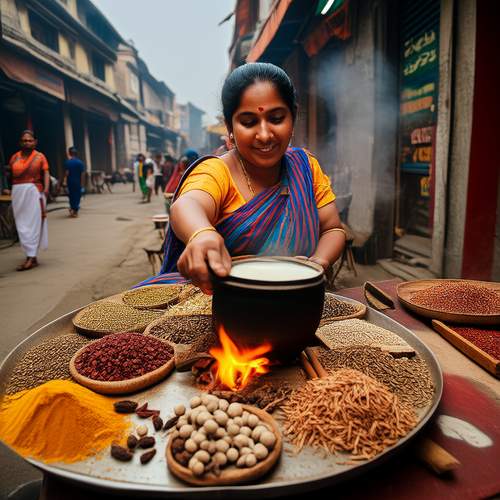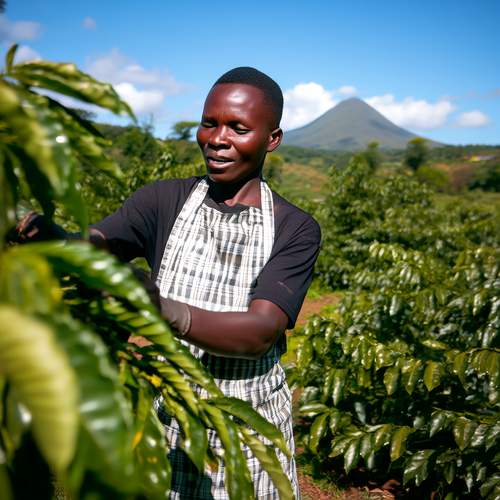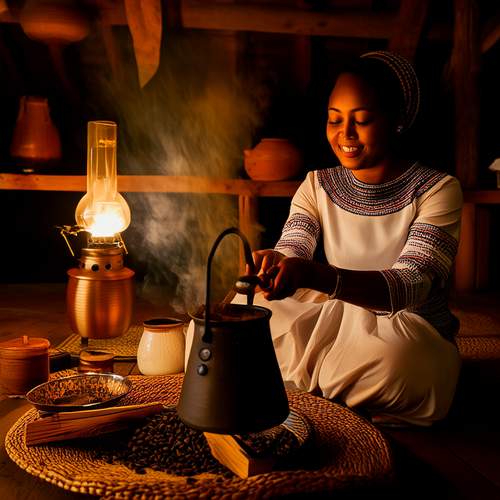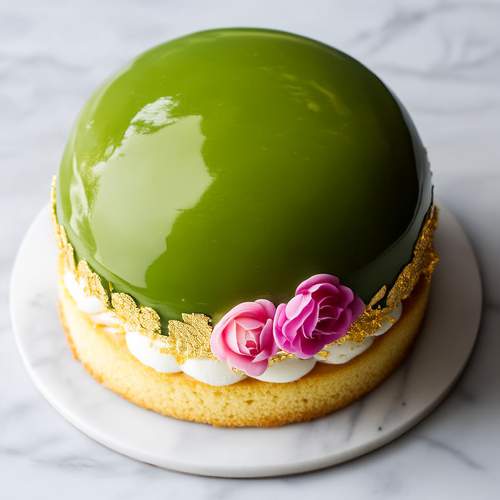The rich aroma of freshly roasted coffee beans fills the air as the flames dance beneath the jebena, a traditional clay coffee pot. In Ethiopia, the birthplace of coffee, the brewing process is not merely a daily routine but a sacred ritual steeped in history, community, and artistry. The boiling stage, in particular, is where science and tradition collide, transforming humble beans into a liquid celebrated across the globe.
Ethiopian coffee ceremonies are a multisensory experience, and the boiling phase is its crescendo. The jebena, with its bulbous base and slender spout, is designed to control heat distribution, allowing the coffee to reach its optimal temperature without scalding. As the water begins to simmer, the host—often a woman dressed in traditional white cotton—carefully monitors the pot. The sound of bubbling liquid is a signal, a moment of anticipation. Too vigorous a boil, and the coffee’s delicate flavors are lost; too timid, and the brew lacks depth. Mastery lies in finding the balance.
The boiling process is as much about chemistry as it is about culture. When the water reaches just below boiling point, the host adds finely ground coffee, stirring gently with a wooden spoon. The mixture froths and rises, a phenomenon Ethiopians call "keben". This is the heart of the ritual—a fleeting, effervescent moment that demands precision. If the coffee overflows, it’s considered bad luck; if it fails to froth, the brew is deemed incomplete. The host must coax the keben to form a rich, velvety foam, a sign of skillful preparation.
Beyond its technical demands, the boiling stage is a social anchor. Guests gather around the jebena, drawn by the scent and the promise of conversation. In rural villages, the ceremony can last hours, with three rounds of serving—abol, tona, and baraka—each weaker than the last but no less significant. The first round, abol, is the strongest and most aromatic, a direct result of that initial boiling phase. It’s a testament to patience, a reminder that the best things in life cannot be rushed.
The significance of boiling in Ethiopian coffee culture extends beyond the physical act. It’s a metaphor for transformation, a symbol of how raw ingredients—like coffee cherries or even human connections—are refined through time and heat. The jebena becomes a vessel not just for water and beans, but for stories, laughter, and shared silence. In a world increasingly dominated by instant gratification, the Ethiopian coffee ceremony stands as a defiant celebration of slowness, of the alchemy that happens when things are allowed to simmer.
Modernity has introduced electric kettles and espresso machines to Ethiopia’s cities, but the traditional boiling method endures. Urban cafés might offer faster service, but the jebena remains the soul of the ceremony. Tourists and locals alike are drawn to its authenticity, to the way it demands presence. There’s no distraction here, no multitasking—just the steady watch over the pot, the gradual unfurling of flavor, and the unspoken understanding that some traditions are too precious to boil away.
What makes the Ethiopian coffee ceremony extraordinary is its refusal to separate the spiritual from the practical. The boiling stage isn’t just about achieving the right temperature; it’s a meditation, a way of honoring the bean’s journey from soil to cup. As the steam rises from the jebena, so too does a sense of connection—to the earth, to history, and to the people gathered in that moment. In a single pot, an entire philosophy simmers.

By /May 26, 2025

By /May 26, 2025

By /May 26, 2025

By /May 26, 2025

By /May 26, 2025

By /May 26, 2025

By /May 26, 2025

By /May 26, 2025

By /May 26, 2025

By /May 26, 2025

By /May 26, 2025

By /May 26, 2025

By /May 26, 2025

By /May 26, 2025

By /May 26, 2025

By /May 26, 2025

By /May 26, 2025

By /May 26, 2025

By /May 26, 2025

By /May 26, 2025